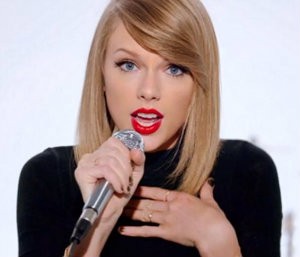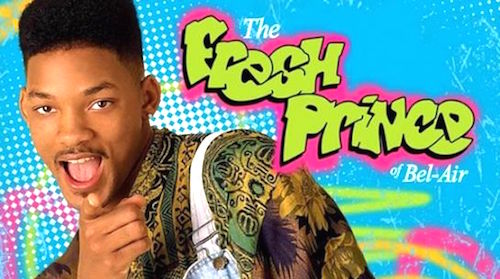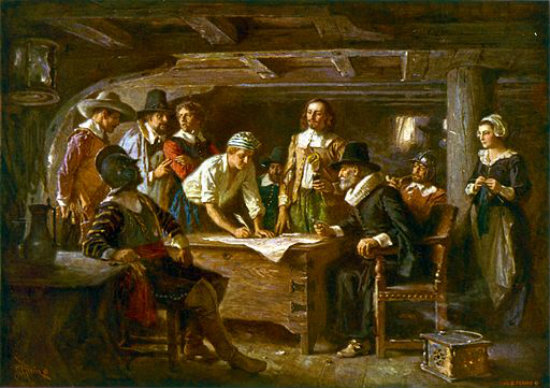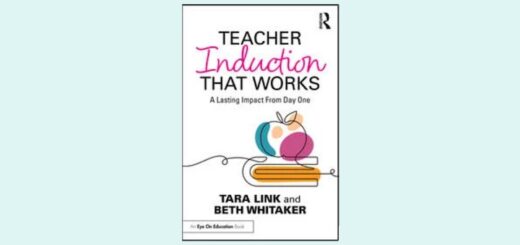History Song Parodies Meet 8th Grade Culture
A MiddleWeb Blog
I wrote about how parody songs can help students synthesize information in a unique way in a Future of History post almost a year ago. My post reported on one class, one time, so I wanted to expand my sample size to see if the results were “replicable.”
Recently my students were working on a unit about the U.S. Constitution and the historical influences on its development. It was one of those transition days, where you can’t start a new unit yet because of various extenuating circumstances – a liminal stage in the learning process. What better time for parodies!
I told the students that their parody songs could be about the Constitution or about Constitutional influences – they could choose. This was the first time that I saw some students balk at an assignment. “But I am not musical” was a common concern. I tried to reassure the students that they didn’t have to write the music – just the lyrics, and that they didn’t even have to sing it if they weren’t comfortable doing so.
The social impact of song selection

Taylor Swift? Really???
Another thing I noticed was the students took a great deal of time deciding what song to parody. I teach middle school – 8th grade specifically – and the choice of song was defining, socially. Students would suggest songs to their team, and I could see all of the machinations of the social system at work: “that was so last year” or “I can’t believe you like Taylor Swift!”
Offering up a song is like offering up part of the self. There was a lot more social negotiating than I expected based on the last time I did song parodies. A student sat sullen while his team worked diligently to craft song lyrics: “I don’t know this song,” he explained.
So while some students really embraced this activity, and I once again saw really impressive synthesis of information and a valuable learning process embedded in the lyric changing and information choosing, I also saw some potential pitfalls.
When doing parody songs with younger middle graders, it would likely be helpful to offer five song options instead of leaving the field wide open. It is hard to navigate social waters in the middle grades, and what is more social and declarative of in-ness or out-ness than choice of music?
While some of the social difficulties of middle school-dom were uncovered in this activity, the students’ ability to explain and synthesize what they had learned about the Constitution and Constitutional influences was demonstrated as well.
“Fresh President of The USA”
to the tune of Fresh Prince of Bel Air theme song
Now, this is a story all about the Constitution and how
The colonists lives got flipped-turned upside down
And I’d like to take a minute
Just sit right there
I’ll tell you how they became the USA
In England born and raised
was where the king spent most of his days
Chillin’ out maxin’ relaxin’ all cool
When a couple of colonists who were up to no good
Started making trouble in the colonies
They got in one little fight with the king and they all got scared
They said ‘we’re movin’ to make a place that one day will be the USA
down in Philly in 1787, at Independence Hall we wrote a document called the Constitution
this is the rules of a new country free of a king
this is what the people want
Hmmmmm this might be alright.
But wait I hear there is going to be a Constitutional Convention with all the delegates from the colonies
I hope they’re prepared to start a new country
Well, the country will have three branches
Judicial, executive, and legislative
I ain’t trying to be a king
I just want to be a president
I sprang with quickness and said there will be a house and a senate to make laws
In this Constitution was a document called the Bill of Rights
It stated you could bear arms so you could fight
You could also speak for your rights
It came into power 1789
and that’s how we were finally free
to be the USA
Another group took on the idea of consent of the governed, passed down from the Mayflower Compact.
Mayflower Compact Parody of “Rude” by Magic
Saturday morning Pilgrims jumped out of bed
To leave their home country
England, sailed west for twoooo
In 1620
They influenced the Constitution
With consent of the governed
And when they landed
They created a document that they all signed
They agreed to work together so they could survive
Survive Survive Survive
So they created a document that all men signed
To show that they agreeeeed
Why didn’t the women sign too
Don’t you know they’re human too
Why didn’t the women sign too So the men just signed anyway
That’s called coverture
Coverture Coverture
The Mayflower Compact
Is consent of the governed
All the people agreed
To work together
Why didn’t the women sign too
Toooooooooooo
Why didn’t the women sign too
Toooooooooooo
It is interesting to note that the Mayflower Compact parody writers chose to talk about women not being included in the signing. It is something we talk about when discussing the Mayflower Compact’s influence that clearly had an impact on these students.
Despite the challenges…
While there were a few more pitfalls this time with the parody songs, I will be better able to anticipate possible difficulties with my students when doing this activity again. Overall, I still maintain that parody songs help students to sort through information, find out what is meaningful to them, discover what is lasting and important, and be able to display it in a creative way.
Have you tried using parodies to synthesize material? How has it gone?
































Hi Jody & Shara! Did you ask your students to “perform” their songs or just to submit the lyrics?
Hi S Heath, thanks for reading! The answer to your question is “it depends” and what it depends mostly upon is the social dynamic of a particular group in class. Most of the time, I would ask the students to perform, or create a video, or perform in some kind of way for closure. However, in those classes where students seem to be struggling with the social aspects of this particular assignment, I will have them just share the lyrics with their peers instead. Not often, but occasionally, that is the safest thing to do for the social/emotional integrity of the kids. Most of the time though, the students WANT to share and so a performance is welcomed. :)
-Jody
I didn’t write it, but I use it every year. It’s amazing! https://www.youtube.com/watch?v=uZfRaWAtBVg
Check out The Hip Historians on Youtube for a series of song parodies done by a group of my former 8th Grade Ancient World History students; they were amazing.
https://www.youtube.com/channel/UCKBZc9kKCXvOlrNo2sPHnwA
I had students do parodies based on the American Revolution as well. I suggested they go with a ” breakup song”, since that’s what we were essentially doing in 1776. I also provided several suggestions, including Taylor Swift staples such as Bad Blood and We are Never Getting Back Together. They rose to the challenge and came up with some really clever things. I do song parodies all the time- some I write and perform, some the students do. It is definitely a worthwhile teaching/learning method.
Shameless self promotion, but I write parody songs for history as well. You can view them here: https://www.teacherspayteachers.com/Store/Singing-Social-Studies
I have written a number of raps for my students in History. I go by the name MC Knightmare and the kids love it! Wish I had the tech knowledge to make videos but my most recent is “Hate the Way You Lie”, using the Rihanna and Eminem song to write one about the American Revolution.
Check it out! https://www.youtube.com/watch?v=9r5sBlcJ7TM